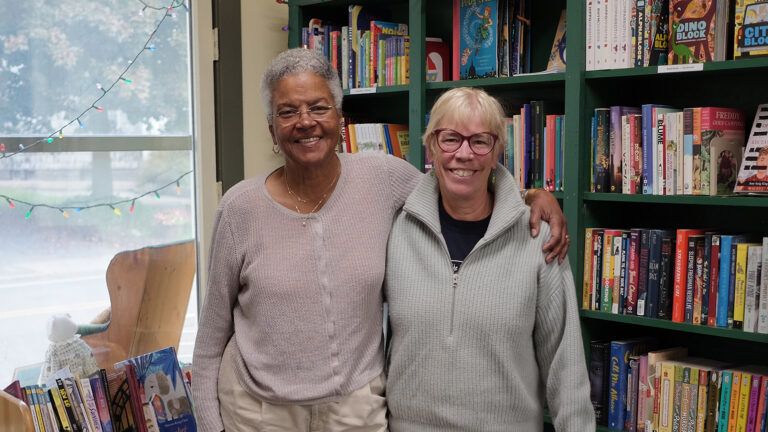Al Roker has shared two personal stories with Guideposts over the years—one about becoming a father and the other about the special bond he has with his son, Nick. Now he is opening up again with a new book, You Look So Much Better in Person: True Stories of Absurdity and Success, a part memoir and part self-help guide. Guideposts.org talked with Al about the book and his “Al-truisms” to live an inspired life, especially in these days of the pandemic.
Guideposts: You started writing this book about six months ago, pre-pandemic. Now here you are inspiring people during a time when we need it most. That’s interesting timing.
Al Roker: Yes. In the book I talk about people who have these five-year plans. It’s like, really? Seriously? I mean, c’mon. If somebody had said to you six months ago, “Oh, uh, you know what, we’re gonna be suffering,” or, let’s say seven or eight months ago, “We’re going to be suffering through the greatest pandemic in over 100 years. We are going to have an economic meltdown. And we are going to have a social reckoning, the likes of which this country hasn’t seen in over fifty years. Sixty years.” And, you know, you would have said, “Yeah right, maybe one. Possibly two. Never three!”
Well, guess what? Here we are. And all of our planning, all of our ideas, all of our wildest dreams have been changed. Have been inexorably changed by what has happened. And all those plans have gone out the window. And you have to create new plans. So that’s why I’m not a big believer in long-range planning other than retirement, which I hopefully don’t have to worry about for a while. And making sure my kids are okay.
GP: Your book is divided into chapters called “Al-truisms”—nuggets of wisdom you live by, such as “Assumptions Are NOT Your Friend,” “A Spoonful of Humor Helps Everything Go Down,” “Know the Cards and Play Your Best Hand” and “Never Say No and Say Yes.” What has contributed to your positive outlook on life?
AR: I’ve been very lucky. I hate to use the word “blessed” because that implies that those who have not been able to do what I’ve done aren’t. I will say that I’ve been fortunate, because I’ve had friends, people I know who are as, if not more, talented than me, but didn’t get the breaks I did.
I think I’ve been the beneficiary of being in the right place at the right time and I appreciate all that. I appreciate the sacrifice my parents made to make sure we had education. I appreciate the chances people took on me when they didn’t have to. So it’s very hard not to be optimistic and positive. That’s not to say that things haven’t happened in my life that I’ve had to overcome. But by and large, things have been okay. So I tend to reflect that.
GP: What do you think readers might be most surprised about learning from you in the book?
AR: That I’m pretty shy. I don’t like going out to big gatherings. I prefer small dinners with friends than big things…that I never really intended to be on TV! I didn’t want to be on television; I wanted to work in television. An opportunity presented itself.
I did not have a burning desire to be on TV. To be honest, no desire to be on TV. Because you’ve got to remember, it was 1974. The balding, chunky, Black kid wasn’t your “Oh, this guy’s got to be on television.” When I looked in the mirror I didn’t say, “Oh, yeah, you’re going to be on television.” It just wasn’t the way. It came as a surprise.
GP: You attended Xavier, a Jesuit high school in New York City. What were some of the lessons the Jesuit teachers instilled in you that you carry with you to this day?
AR: Education’s always been a big part [of my life]. Xavier kind of is what put me on the track. They had something called the higher achievement program, where they went to other Catholic elementary schools and looked for kids who were in disadvantaged neighborhoods, who they thought had potential. Both Black and white. And so I got to be part of that program. I got to go to Xavier which was a military school. … It was very formative in that it taught me discipline. It taught me the importance of education. And that faith and science and education are not exclusive but actually work hand in glove.
GP: Did your faith help you when writing this book?
AR: That’s part of my life. It’s funny, one of the things since the pandemic—our church goes to a summer schedule and there’s only one mass. Interestingly enough, with all these churches, ours included, streaming their services, our son, Nick, has taken it upon himself to go online to our church’s website every Saturday night, print out copies of the program and set things up in our family room on Sunday morning. He lights candles. And we go to church. Right there in our family room.
I think a number of people have focused on church (at home), the distractions have gone away, and they are able to focus more on their faith. And so, if there’s been a silver lining to this, that’s happened.
GP: Do you have a favorite “Al-truism” chapter?
AR: No. The good thing is, if there’s one section that doesn’t strike your fancy, you can skip ahead a few pages. I like the way it ends in that I bring it back to everything with the television show that has informed my life, which is “The A-Team.” I want everybody to find their A-team. You know, the people in their lives or at work or home or in their faith group that is their A-team.
Because nobody does this by themselves. I’m not a success by myself. Whether it’s my family, my friends, my coworkers; I didn’t get to this point by myself. Anybody who tells you they did, or anybody who says ‘I alone can fix it’ or ‘I can do this’ or ‘I can do that’—run in the opposite direction from that person.
GP: I was moved by your “ugly cry” chapter titled “If You’re Gonna Cry, Know How to Cry,” about how you got in trouble by your first boss for pulling a stupid office stunt. You bring the reader right alongside you at that moment.
AR: This was my first real job in television. My boss yelled at me and deservedly so. It could have been much worse, and yet, I started to cry. My dad was a very demonstrative, emotional person. I’d seen him cry a number of times. So here my boss was so taken aback. He didn’t quite know what to do. But he instinctively knew to get me out of the environment of the newsroom. Took me to the back of the parking lot, and just kind of explained things to me, and made sure I was okay.
I mean I’m the one who was the jerk and he was comforting me. It wasn’t so much the crying as the response to the crying that I remembered. So you’ve got to pick your places and know the people you’re going to cry in front of.
GP: What message would you like readers to take away from your book?
AR: If there’s one, it’s know the power of “yes” and “no.” If I hadn’t said yes to my college professor, Dr. Lewis B. O’Donnell, who said, “I want you to try out for this weekend weather job at Syracuse” when I was a sophomore in college, where would I be today? I don’t know. I don’t know what I’d be doing.
But yet the power of no. When it comes to my family, I try to put them first and say no to certain things. Now that’s a lot harder to do when you’re driving a bus or you’re a factory worker or you’re working in a supermarket. You’ve got to feed your family. That’s a lot harder to say. But there may be other things in your life that you can say no to that makes your quality of life better.
 |
Al Roker is the author of You Look So Much Better in Person: True Stories of Absurdity and Success, available from Hachette Go wherever books are sold. |
This interview has been condensed for clarity.




